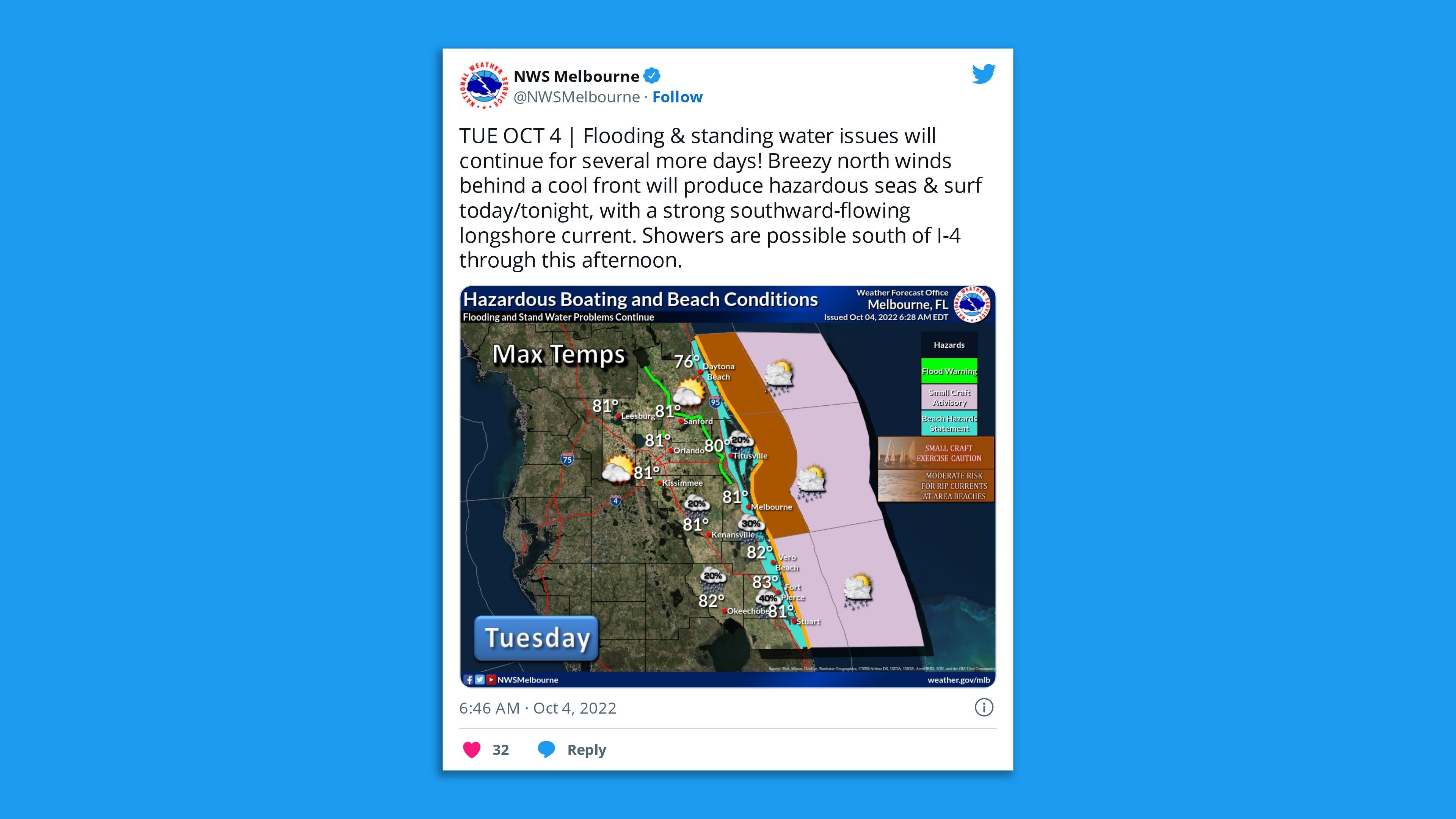The death toll from Hurricane Ian has risen to 84, days after it pummeled Florida's western coast as a major storm before barreling through the Carolinas, according to AP.
The latest: More than 344,000 customers were without power in Florida on Tuesday night as affected states continued with recovery efforts in the aftermath of last week's hurricane. That's down from almost 414,000 customers the day before.
- Of those confirmed dead, 75 were in Florida, another five occurred in North Carolina and one death was recorded in Virginia, per AP. Another three people died in Cuba as a result of the storm.
- Floodwaters were starting to recede in many places. But the National Weather Service office in Melbourne said on Tuesday night flooding and standing water issues in central Florida would continue for "several more days."

The big picture: Ian made landfall as a high-end Category 4 storm in Florida last Wednesday. On Friday, it made landfall in South Carolina as a Category 1 storm, carrying a "life-threatening" storm surge of 4 to 7 feet, Axios' Andrew Freedman writes.
- Officials in Florida said over 2,350 people had been rescued in the state as of Monday.
- The storm had regained hurricane status on Thursday night on its way to a damaging encounter with the Carolinas and a portion of southern Georgia.
State of play: "This is going to be a long road to recovery and there are a lot of people that are impacted," Federal Emergency Management Agency (FEMA) Administrator Deanne Criswell told ABC's "This Week" on Sunday.
- Florida Gov. Ron DeSantis announced Tuesday officials had opened a disaster recovery center in Fort Myers, which was pummeled by Hurricane Ian.
- "This center is a one-stop-shop, bringing together 10 state and federal agencies to help Floridians get back on their feet," he tweeted. "More locations will be opening soon."
- Sen. Marco Rubio (R-Fla.) told ABC's "This Week" on Sunday there had been "an extraordinary mobilization of the army corps, the coast guard, I mean virtually every federal asset that's available, not just through FEMA but other agencies," Rubio added.
Of note: President Biden, who's due to meet with DeSantis during a visit to Florida on Wednesday, noted last week that the hurricane "is likely to rank among the worst in the nation's history."
- "You have all seen on television homes and property wiped out. It's gonna take months, years to rebuild," he said.
For the record: NHC officials noted Thursday that many hurricane-related deaths occur days after the storm has passed while people are recovering.
- These deaths, also called "indirect deaths," primarily arise from excessive heat and over-exertion and carbon monoxide poisoning from running generators indoors.
More from Axios:
- How Hurricane Ian caught so many off guard
- How you can help Hurricane Ian recovery efforts
- In photos: Florida devastated by Hurricane Ian
Editor's note: This story has been updated with new details throughout.







